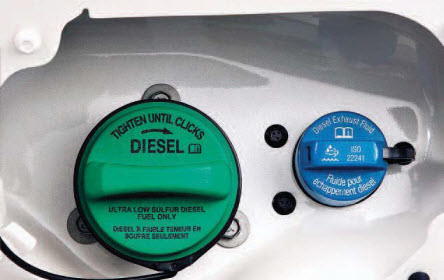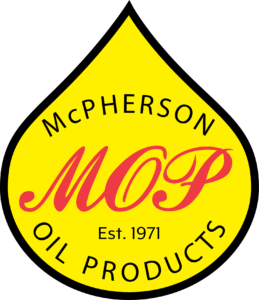How To Keep DEF From Going Bad
27 Mar 2019, Posted by in General
Diesel Exhaust Fluid, or DEF, is an important component in keeping heavy-duty trucks and machinery operating within federal emission guidelines. At a chemical level, DEF is a combination of deionized water and urea that transform harmful nitrous oxide emissions into harmless water and gas. Starting in 2010, DEF became a major need for companies using medium and heavy-duty Diesel vehicles. Changes in EPA emission standards required reductions in diesel burning engines to reduce their pollution output to the lowest levels in history.
But, what happens when DEF goes bad? Here’s how to tell when DEF does bad and how to prevent it.
First, what does bad DEF look like?
The easiest way to spot bad DEF is by looking at it. DEF is naturally clear, so if the solution looks cloudy or colored in any way, it’s probable that it’s old or has been contaminated.
Second, you need to know the consequences of bad DEF. It can cause a host of equipment issues:
– Increased consumption by equipment
– Issues with equipment, including engine shut-down
– Potential damage to components (DEF dosing pump and diesel particulate filter)
– Malfunctions with machine’s SCR (Selective Catalytic Reduction) system
So how do you keep your DEF from going bad? Here are 5 ways to keep your DEF clear and efficient.
Shelf Life
- Like many petroleum products, DEF has a shelf life. DEF can usually be stored for a year without contamination.
Storage
- Proper storage will increase DEF shelf life. DEF must be stores in ISO-approved containers made from composite materials. Remember, DEF is corrosive to aluminum. Containers made from stainless steel and polypropylene are good options. Make sure all DEF containers are correctly labeled and dated.
Temperature
- DEF isn’t harmed by freezing temps. Because it’s 2/3 water, it can freeze without harm to the product. Keep in mind it will expand when frozen so avoid overfilling containers.
- In contrast, heat and sun can both cause DEF to degrade.
- The best temp to store DEF is around 50 degrees Fahrenheit. Keep in mind that prolonged exposure to sun can harm DEF’s composition so keep DEF stored indoors or in a well-shaded area.
Dispensing
- Keep DEF containers’ equipment fill points and nozzle clean. DEF should only be dispensed directly into the machine. Do not use a funnel or transfer DEF to an alternate container as they can be dirty and can contaminate the fluid.
Assign an owner
- It’s a good idea to put on person in charge of DEF care and handling, like a fleet manager, who can remind technicians, operators and other handlers about best practices.
How do you expose of bad DEF?
If DEF is bad, do not use it. Dispose of it immediately in an environmentally friendly way. Do not pour bad DEF down the drain or dump it on the side of the road. Each area has proper standards for disposing of DEF so check with your local government or DEF provider.
We at McPherson Oil are proud to supply DEF. Contact us today and find out how we can help your fleet stay up and running all while saving money.
McPherson Oil is a proud ExxonMobil distributor.
